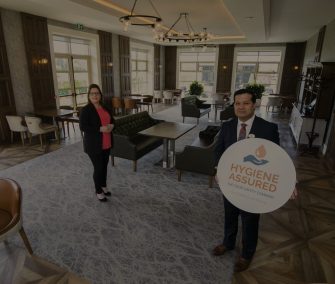The Importance of Pest Control in your Food Business
The production of safe food lies in the hands of the food business operator. Part of that responsibility includes having adequate procedures in place to control pest activity within the business. Pest control is important because pests can carry harmful bacteria that can contaminate foods, i.e., Salmonella, Listeria monocytogenes, etc. Pests are a threat to human health and can lead to fatal illness in humans. Common pests include rodents (rats and mice), flies and flying insects, cockroaches, ants, birds, beetles, and weevils.
Who is responsible for complying?
Pest control is a partnership between the food business operator, the employees, and the pest control specialist who are working together to ensure that there is no threat to the food business.
Food business operator:
- Ultimately responsible for the management of pest control.
- Train and supervise staff in pest control – to be able to identify signs of pest activity and report to management.
- Put systems in place – appointing a specialist within your own organization or hiring an external pest control contractor. Service providers and clients must work together to achieve an optimum standard and prevention of pest activity.
- Agree a site contract specification with your pest control specialist. The specification is based on an initial pest risk assessment survey. Business-specific pests should be identified during the site assessment and monthly surveys.
- It should include how many visits will be made, what will be done each time/the nature of the inspection, which pests will be covered in the inspection, if rodent monitors are used what type are they, if rodents are identified what is the elimination procedure, is there a follow-up procedure, what is the fly control strategy.
- Maintain communication with employees and contractors.
- Ensure action is taken promptly.
- Ensure that resources are in place for pest-proofing.
The employee:
- Report suspicions.
- Ensure that food and waste are stored appropriately.
- Carry out cleaning duties effectively.
- Maintain communication with the FBO and specialist.
The specialist:
- Can be an external consultant or someone appointed in-house.
- Must be thorough.
- Must provide detailed advice and guidance to the food business operator.
- Be available to respond urgently.
What are the consequences of failing to control pests?
- Damage to your stock, equipment, and premises.
- Damage to your reputation.
- Legal action – could result in a closure order, prosecution, forced withdrawal of product, or destruction of products.
If you discover a pest control problem in your premises:
- Contact your pest contractor immediately.
- Contact your Environmental Health Officer.
- Wash, disinfect, and dry any equipment, surfaces, or utensils pests may have come into contact with.
- Throw away any food they might have touched.
- Find out the cause of the infestation.
- Repair any structural defects immediately.
- Have more frequent pest checks, it is recommended to have one at least every three months.
- Improve staff training. Ensure they can spot signs of pest activity.
How to reduce pest activity in your business:
- Ensure the building is in good condition. Make sure that everything is tightly sealed so there are no access points for rats or mice.
- Pest proof your premises.
- Fit insect screens on windows and doors that open directly into food preparation areas from the outside.
- Install electronic fly-killers. Follow the manufacturer’s advice on the location, cleaning, and maintenance of this equipment. The bulbs should be changed annually.
- Rodent monitoring devices – visual inspection with a flashlight, internal/external boxes, non-toxic bait, and monition sensors – all devices need to be mapped and dated.
- Check your deliveries and do not accept a delivery if it shows signs of pests.
- Cover foods waiting to be prepared. Keep food items in sealed food-grade containers.
- Keep external areas clean and tidy. Ensure bins have close-fitting lids and are easy to clean.
- Always supervise pest control providers and ensure the work is carried out as per contract.
Key messages:
- You must have an effective pest control program in place in your food business.
- Prevention is key.
- If you see something – say something.
- Effective pest control is a partnership between the business and the pest control contractor.
For more information on ensuring food safety in your business, get in touch at info@thefoodsafetycompany.ie.


